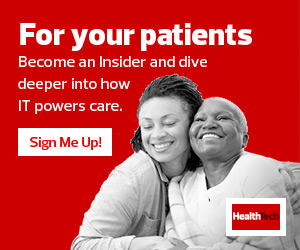Tufts Medicine in Burlington, Mass., is one health system deploying the IT infrastructure necessary to personalize care. The organization built a digital health ecosystem in an Amazon Web Services-hosted environment. The AWS cloud platform provides security, reliability and easier access to data across the system, creating a seamless user experience.
Chief of Digital Modernization Jeremy Marut says a public cloud is the foundation of Tufts Medicine’s digital health ecosystem, integrated with 40 applications and with the ability to pull data from diverse segments such as dietary, badging and visitor management apps. Clinicians can use personalized data from many sources, including wearables and chronic disease-specific management apps.
The money saved by deploying a public cloud could be redirected to invest in artificial intelligence (AI) and machine learning (ML) tools to further the development of personalized medical treatments, Marut adds. For instance, the savings will help Tufts Medicine reduce sepsis and ensure that patients receive the right treatments.
READ MORE: Why should healthcare organizations hire a data quality manager?
For ML purposes, Tufts Medicine turned to Amazon HealthLake to democratize access to health data, according to Marut. HealthLake stores, transforms, queries and analyzes health information within minutes.
“We are taking those algorithms that are feeding that lake and opening it up to a greater quantity of users that are trained to care for patients and improve their lives,” Marut says.
In addition, Amazon Lex-powered chatbots are connecting patients to more personalized care.
Marut describes a typical physician’s approach to using ML data: “Now we’re taking all of this information that was really for an organization to get the highest levels of insurance reimbursement and personalizing the care that we give to this person because of the work that was exposed by all of these modern tools.”
Still, the journey toward more personalized healthcare is just getting started. “We’ve got things to stick to your arm, we’ve got AI, Apple Watch devices. We’ve got all these things that send data, but we’re not using it to create a course of action, a journey, for this particular person yet,” Marut says.












